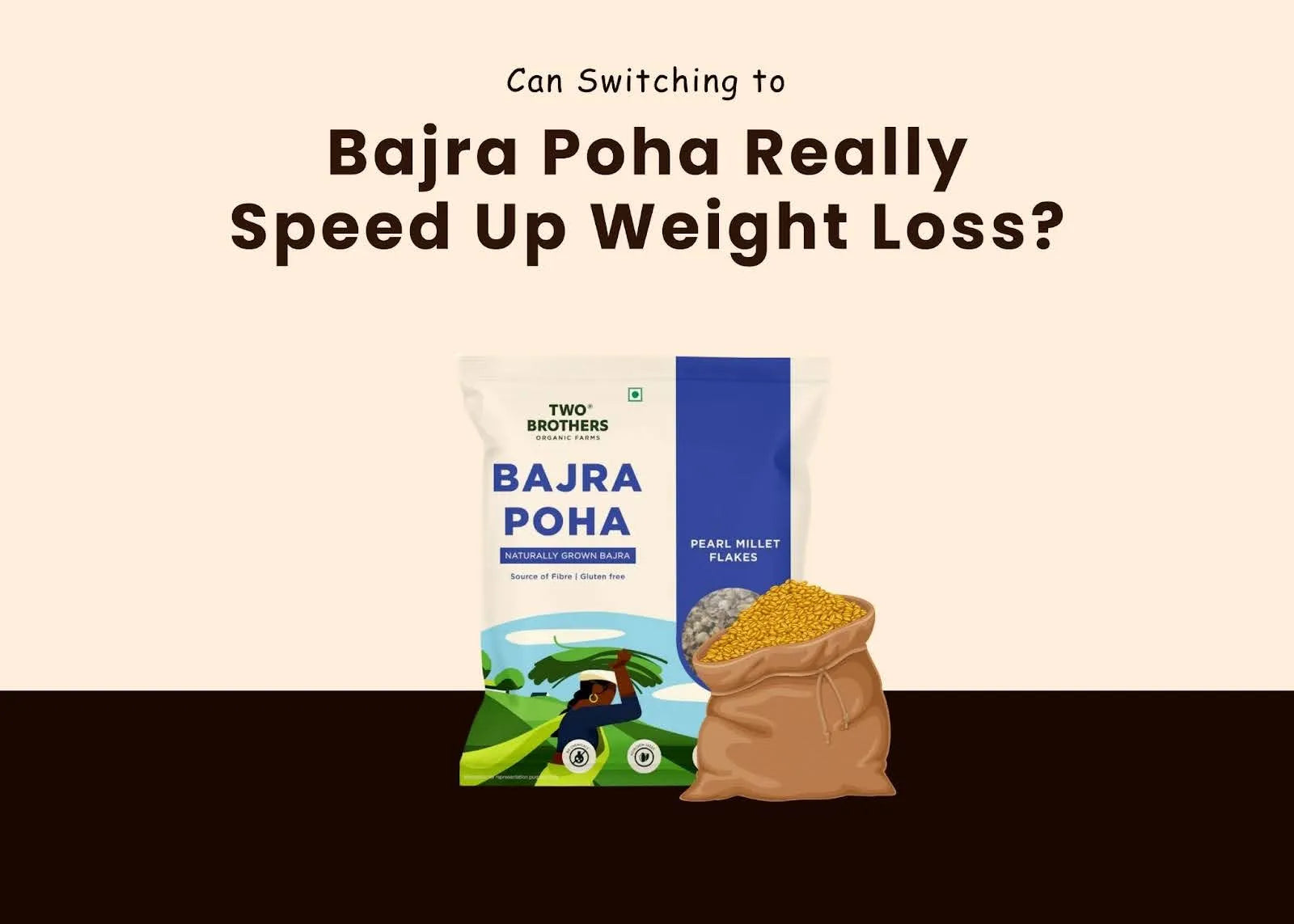Ever notice how some meals leave you feeling energized while others make you want to curl up on the couch? Your gut has a lot to say about how you feel throughout the day. When your digestive system is struggling, it doesn't just affect your stomach; it can influence your energy, mood, and overall well-being.
The good news? Supporting your gut health doesn't have to be complicated. Nature has provided us with powerful superfoods for gut health that can help transform your digestion from the inside out. These wholesome, nourishing foods work with your body's natural processes to support a healthier, happier gut. Let's explore the best foods for gut health that can make a real difference in how you feel.
What Makes a Food "Super" for Your Gut?
Before we jump into the list, let's understand what your gut actually needs. Your digestive system is home to trillions of microorganisms, collectively called your gut microbiome. These tiny helpers break down food, produce vitamins, regulate your immune system, and even influence your mood.
The best foods for gut health support these beneficial bacteria while reducing inflammation and healing the gut lining. For those dealing with the best foods for leaky gut syndrome, this becomes even more critical. A damaged gut barrier allows particles to "leak" into your bloodstream, triggering inflammation throughout your body.
The Top 11 Superfoods for Gut Health
1. A2 Cultured Ghee: Ancient Wisdom for Modern Guts
Let's start with a traditional superfood that's making a major comeback: A2 cultured ghee. Unlike regular clarified butter, authentic A2 Ghee contains butyric acid, a short-chain fatty acid that directly nourishes your gut lining.
Butyric acid acts as fuel for the cells in your colon, reducing inflammation and helping to repair a damaged gut barrier. This makes ghee one of the most powerful foods for leaky gut. The A2 protein in desi cow ghee is also easier to digest than the A1 protein found in most commercial dairy.
At Two Brothers Organic Farms, ghee is made using the traditional bilona method, hand-churning cultured curd from grass-fed A2 cows. This time-honored process preserves beneficial enzymes and probiotics that support digestive health.
How to use it: Start your day with a teaspoon of ghee in warm water, or drizzle it over vegetables. If you’re wondering how much ghee per day is beneficial, many people find that having a small amount daily helps reduce bloating and improve bowel regularity.
2. Fermented Foods: Nature's Probiotic Powerhouses
Fermented foods like sauerkraut, kimchi, and kefir are loaded with live beneficial bacteria. These probiotic-rich superfoods for gut health help repopulate your microbiome with the good guys.
Add a spoonful of sauerkraut to your lunch or enjoy a glass of kefir as an afternoon snack. Start small if you're new to fermented foods, as they can cause temporary gas while your gut adjusts.
3. Bone Broth: Liquid Gold for Your Gut Lining
Bone broth contains collagen, gelatin, and amino acids like glutamine that help seal a leaky gut. When simmered for 24+ hours, bones release these healing compounds into an easily digestible form.
The gelatin in bone broth actually lines your intestinal wall, creating a protective barrier. This makes it one of the most soothing foods for leaky gut, especially during healing phases.
4. Wild-Caught Salmon: Omega-3s That Fight Inflammation
Chronic gut inflammation often stems from an imbalance of omega-6 to omega-3 fatty acids. Wild-caught salmon provides powerful anti-inflammatory omega-3s that help calm intestinal inflammation.
These fatty acids also support the production of compounds that strengthen your gut barrier and promote beneficial bacteria growth.
5. Organic Berries: Antioxidant Protection for Your Microbiome
Blueberries, strawberries, and blackberries contain polyphenols, plant compounds that act as prebiotics, feeding your good gut bacteria. They're also packed with fiber and antioxidants that reduce oxidative stress in your digestive tract.
6. Organic Leafy Greens: Fiber Your Microbiome Craves
Spinach, kale, and Swiss chard provide both soluble and insoluble fiber, the two types your gut needs. Soluble fiber feeds beneficial bacteria, while insoluble fiber adds bulk to your stool and promotes regular bowel movements.
These greens also contain sulfoquinovose (SQ), a unique sugar molecule that feeds specific beneficial bacteria in your colon.
7. Sprouted Grains and Legumes: Easier on Your Digestion
Sprouting breaks down anti-nutrients like phytic acid that can irritate sensitive guts. Sprouted khapli multigrain atta from Two Brothers contains higher levels of beneficial enzymes and is easier to digest than conventional wheat.
For those exploring gluten-free options, ancient grains like khapli wheat offer a gentler alternative that supports gut health without the inflammatory properties of modern wheat.
8. Organic Ginger: Ancient Remedy for Modern Digestive Woes
Ginger has been used for thousands of years to ease nausea, reduce bloating, and speed up gastric emptying. The compounds gingerol and shogaol have powerful anti-inflammatory effects on your digestive tract.
Fresh ginger tea before meals can help stimulate digestive enzymes and prepare your gut for optimal digestion.
9. Organic Turmeric: Golden Healer for Your Gut
Curcumin, the active compound in turmeric, has remarkable anti-inflammatory and antioxidant properties. Research indicates it may help maintain the integrity of your gut barrier and support a balanced microbiome.
10. Raw Honey: Sweet Medicine for Your Microbiome
Raw, unfiltered honey contains prebiotics, enzymes, and antimicrobial compounds. It selectively feeds beneficial bacteria while inhibiting harmful pathogens, a rare quality among sweeteners.
Manuka honey, in particular, has been studied for its ability to combat H. pylori bacteria and reduce gut inflammation.
11. Organic Coconut Products: MCTs for Gut Healing
Coconut oil, coconut milk, and fresh coconut contain medium-chain triglycerides (MCTs) that have antimicrobial properties. They can help balance your gut bacteria by reducing harmful microbes without affecting beneficial ones.
The lauric acid in coconut also supports the integrity of your intestinal lining.
How These Superfoods Work Together
|
Superfood |
Primary Benefit |
Key Compounds |
|
A2 Cultured Ghee |
Gut lining repair |
Butyric acid, fat-soluble vitamins |
|
Fermented Foods |
Probiotic delivery |
Live beneficial bacteria |
|
Bone Broth |
Seals leaky gut |
Collagen, gelatin, glutamine |
|
Wild Salmon |
Reduces inflammation |
Omega-3 fatty acids |
|
Berries |
Feeds good bacteria |
Polyphenols, fiber |
|
Leafy Greens |
Promotes regularity |
Fiber, SQ, magnesium |
|
Sprouted Grains |
Easier digestion |
Enzymes, reduced anti-nutrients |
|
Ginger |
Improves motility |
Gingerol, shogaol |
|
Turmeric |
Anti-inflammatory |
Curcumin |
|
Raw Honey |
Prebiotic support |
Oligosaccharides, enzymes |
|
Coconut Products |
Antimicrobial |
MCTs, lauric acid |
Building Your Gut-Healing Daily Routine
Here's how to incorporate these superfoods for gut health into your everyday meals:
Morning:
- Start with warm water and a teaspoon of A2 cow ghee
- Smoothie with berries, ginger, and kefir
Lunch:
- Large salad with leafy greens, wild salmon, and olive oil dressing
- Side of fermented vegetables
Dinner:
- A cup of bone broth before your meal
- Cooked vegetables with ghee and turmeric
- Sprouted grain roti or gluten-free option from the Two Brothers gluten free collection
Snacks:
- Raw honey in herbal tea
- Fresh coconut pieces
- Handful of berries
Why Source Matters: The Two Brothers Difference
Not all "healthy" foods are created equal. Conventionally farmed produce often contains pesticide residues that can harm your gut microbiome. Processed foods marketed as "gut-friendly" may contain additives that actually increase inflammation.
Two Brothers Organic Farms takes a different approach. Their products are:
- Grown using traditional, chemical-free farming methods
- Processed minimally to preserve natural nutrients
- Free from artificial additives and preservatives
- Produced with respect for animals and the environment
When you choose quality sources like Two Brothers for your superfoods, you're not just feeding yourself, you're supporting farming practices that heal the earth while healing your body.
Common Mistakes to Avoid
- Adding too many new foods at once: Your gut needs time to adjust. Introduce new superfoods gradually.
- Ignoring food quality: Organic, traditionally produced foods make a real difference for gut health.
- Forgetting to chew: Digestion begins in your mouth. Chewing thoroughly reduces the burden on your gut.
- Not staying hydrated: Water is essential for fiber to work properly and for maintaining gut barrier function.
- Expecting overnight results: Gut healing takes time. Give your body at least 4-6 weeks to respond.
FAQs
Q: How quickly will I notice improvements in my digestion?
Most people notice initial changes within 1-2 weeks of adding superfoods for gut health to their diet. Significant healing of the gut lining typically takes 3-6 months of consistent dietary changes.
Q: Can I eat these foods if I have IBS or other digestive conditions?
Many of these foods can help with IBS, but individual tolerance varies. Start with cooked vegetables, ghee, and bone broth; these are generally well-tolerated. Gradually introduce fermented foods and raw vegetables as your gut heals.
Q: Is A2 ghee safe for people with dairy sensitivities?
A2 cultured ghee has the milk proteins and lactose removed during the clarification process, making it suitable for many people with dairy sensitivities. However, those with severe allergies should consult their healthcare provider first.
Q: How much fermented food should I eat daily?
Start with 1-2 tablespoons of fermented vegetables or a small glass of kefir daily. You can gradually increase to 1/2 cup or more as your gut adjusts. Listen to your body; temporary gas or bloating is normal initially.
Q: Can children eat these superfoods for gut health?
Absolutely! Most of these foods are excellent for children's developing digestive systems. Ghee, bone broth, berries, and cooked vegetables are particularly beneficial. Start with small amounts and watch for any reactions.
Q: What's the difference between the best foods for gut health and the best foods for leaky gut?
The best foods for leaky gut specifically focus on healing and sealing the intestinal lining, like ghee, bone broth, and collagen-rich foods. General gut health foods include these, plus foods that support beneficial bacteria and regular digestion. There's significant overlap between the two categories.
Your Gut Healing Journey Starts Now
Healing your gut isn't about perfection; it's about progress. Start by adding one or two of these superfoods for gut health to your daily routine. Notice how your body responds. Gradually build your way to a diet that truly nourishes your microbiome.
Quality ingredients make a real difference. Explore Two Brothers Organic Farms' collection of traditionally crafted, gut-friendly foods that honor both ancient wisdom and modern nutritional science.










